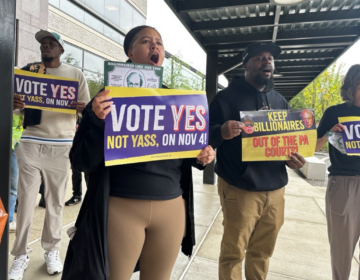City looks to expand tax credits for community development

Last week, a City Council committee voted to recommend a bill that would increase the city’s tax credit for Community Development Corporations, non-profit groups that invest in affordable housing and other neighborhood-serving projects. The bill could provide more funding for dozens of current and future participants in the program.
The CDC Tax Credit Program is one of a handful of tax incentives offered by the city to help encourage development and job creation. Under the program, a business can agree to donate $85,000 per year for 10 years to a qualified Community Development Corporation in exchange for a yearly reduction in their Business Income and Receipts Tax (BIRT) liability for the same amount.
That means, essentially, that big businesses can give $850,000 to CDCs instead of to the city over a period of ten years. The bill before Council now would increase the yearly credit to $100,000, or $1 million over the course of a decade. (The tax credit was cut from $100,000 to $85,000 a few years ago because of expected shrinking BIRT revenues due to the recession.)
The program was created in 2002 through legislation introduced by At-Large Councilman Wilson Goode, Jr., who is also the sponsor of the current bill. Since then, the program, which is intended to spur economic development in neighborhoods across the city, has expanded steadily. Initially the program was open to ten CDCs. The number increased incrementally to 15, then to 25, then to 30, and now the number stands at 40, including a small number of “non-profit intermediaries.”
“The Philadelphia CDC Tax Credit has been a vital source of funding—literally a lifeline for many CDCs—to provide flexible support for long-term work on neighborhood economic development,” said Beth McConnell, policy director for the Philadelphia Association of CDCs, in testimony to Council last week.
Since the inception of the program, the city has waived $20.7 million in Business Income and Receipts Tax liability, according to a response to a Right-To-Know request filed by PlanPhilly last summer.
The city denied PlanPhilly’s request for a list of businesses that have participated in the program, citing tax-return confidentiality rules. To see a list of CDCs benefiting from the tax, click here.
In 2012, PACDC released a report showing that CDCs had contributed $3.3 billion to the local economy over the past 20 years, resulting in the creation of 11,600 jobs and adding $28 million to the city’s tax rolls.
Despite the tax-credit program and the demonstrated impact of CDCs’ community investments, many groups still struggle to maintain funding. Logan CDC ceased operations abruptly last summer, for example, citing an inability to secure stable funding sources. PlanPhilly has been unable to reach former representatives of the group; it’s unclear what will become of the neighborhood plan the CDC was in the process of creating.
Beth McConnell said it’s not uncommon for CDCs’ budgets to fluctuate. She said that almost every CDC has had to make staffing or programming cuts in recent years. PACDC doesn’t help individual groups get involved in the tax-credit program, McConnell said, but advocates for the program’s expansion.
The bill will get a first reading in Council on Thursday, and could be adopted as early as next week.
WHYY is your source for fact-based, in-depth journalism and information. As a nonprofit organization, we rely on financial support from readers like you. Please give today.






